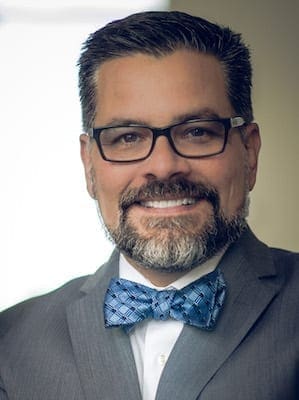Last week was National School Choice Week (NSCW).
According to the NSCW website, “School choice means giving parents access to the best K-12 education options for their children. These options not only include traditional public schools, public charter schools and public magnet schools, but also private schools, online academies and homeschooling.”
On the surface, “school choice” sounds wonderfully appealing. What family would not want to have “choices” when it comes to the education of their children?
However, proponents of “school choice” don’t always share the overarching facts and ramifications of their policies.
In addition, the “facts” they do use are often manipulated and packaged in a way to support the goal that some proponents seem to have of privatizing public education for corporate profits.
Public education is a multibillion-dollar industry that corporations and special interests would like to gain access to over time.
For example, privatizers state as fact that charter schools report better academic outcomes than public schools. Those statements are misleading at best and outright falsehoods at worst. The findings used in the comparison are very complex.
In reviewing a report by the Center for Research and Education Outcomes (CREDO) by Stanford University, U.S. News and World Report reported that while some charter schools provide extraordinary outcomes for some students, there is a wide range of charters producing both effective and ineffective outcomes.
Older charters seem to produce better outcomes, while the newer charters are falling short of public schools.
Yet, there are tremendous difficulties when it comes to evaluating and comparing charter schools with public schools. In many ways, it’s like comparing apples and oranges.
Charter schools can select enrollment and expel students they deem not to meet their standards (both academically and behaviorally).
Public schools, on the other hand, have the responsibility to educate every child in their communities regardless of learning potential, behavioral issues or other challenges.
Also, public schools must comply with the Individuals with Disabilities Education Act, while private charters have the option to be noncompliant.
Some charters are compliant, but some opt out because they are unable or unwilling to provide education to every kind of student. Public schools do not have that choice.
Even more compelling, studies indicate that charter and public schools educate students at the same levels. CREDO found the outcome levels’ difference negligible.
Another favorite argument for “school choice” is the notion that it helps poor and minority students.
While I applaud their compassion for poor and minority students, choice initiatives do not fulfill the promises they make.
For example, the increase in the voucher program in Indiana has helped mainly white suburban students, leaving poor and minority students behind.
Privatizers argue that “school choice” needs funding on the same levels as public schools.
The means they seek to accomplish funding is through “savings accounts,” which are nothing less than a repackaged voucher system in which the state places money into an education savings account for qualifying students that parents can use to pay tuition for a school of their choice, private or otherwise.
Vouchers redistribute public money for the funding of private education. Herein lies the problem: A vast majority of vouchers will not come close to paying for the overall private education expenditures.
It is misleading and immoral to suggest otherwise, as it could result in families not realizing the additional costs they will be faced with beyond the money received through a voucher.
In addition, when vouchers are used to fund private school education, they divert funding away from public education; oversight on the use of the allocated funds comes from only the private intuitions. In other words, there is no guarantee the student will receive the benefit of those funds.
If the school is operated by a church, the church could use federal funds to operate the school, freeing other resources to complete repairs and maintenance for the church. Such was the case made by the pastor of St Jude Parish in Indiana.
Furthermore, vouchers used to support private religious education erodes the separation between church and state – a direct violation of the First Amendment’s Establishment Clause.
Let me be clear: I have no problem whatsoever with private religious education. It’s a right I support, even if I disagree with certain theological convictions of those institutions.
However, public money should not be used to endorse and promote those convictions.
Finally, some school-choice advocates claim the reason behind their attempts are that public schools are failing. This is an outright lie.
While the public education system has critical issues (inadequate funding by state governments and income inequality contributing to modern-day segregation), the notion that they are failing does not square with recent facts.
The CREDO study at Stanford University found that public schools slightly outperformed charter schools.
An analysis seeking to contextualize U.S. students’ test scores compared to other nations offered the following sports analogy: “The U.S. is in the playoffs, but it’s not the top-seeded team. Those real results are useful to know when deciding whether to blow up the franchise and start all over or build on prior success to make the modifications necessary to be the best.”
Public schools are not failing. On the contrary, they are succeeding even with wealthy and powerful organizations working against them and with many state legislatures choking their funding.
I am a proud supporter of public education and a product of public schools. My teachers, principals and counselors were instrumental to me. Their lessons and wisdom shaped my mind and life for decades to come.
To all public-school educators, I want you to know that there is a large faith community that believes in you and your work. We pray for you every day and advocate for you when the opportunity arises.
Teachers are shaping the future of the United States, so people of faith should unite behind them and work toward supporting them.
Public education needs to be completely and generously funded and supported because it provides the most ethical and just pathway to educate all of God’s precious children.


